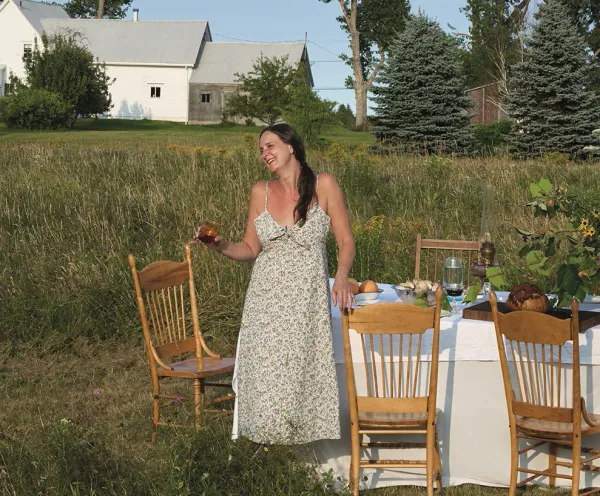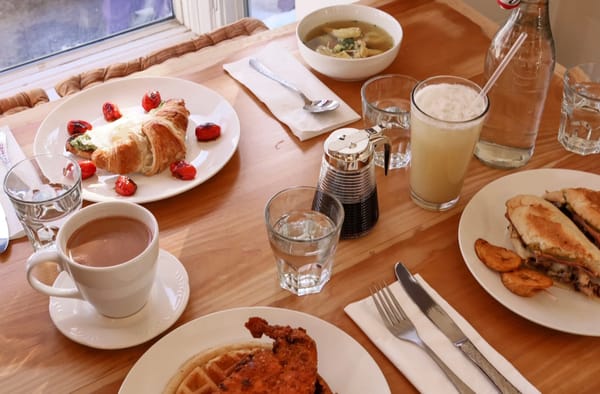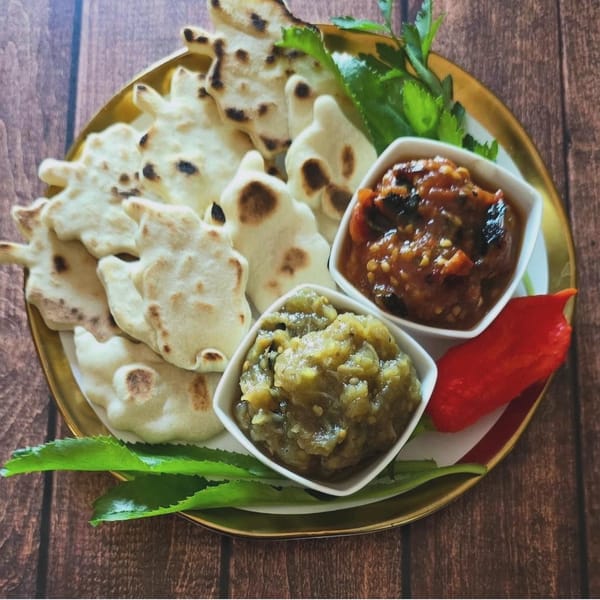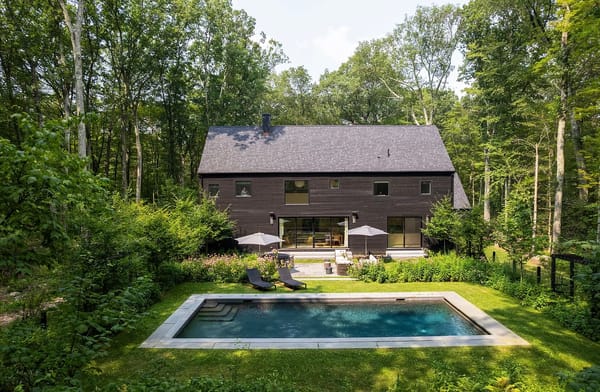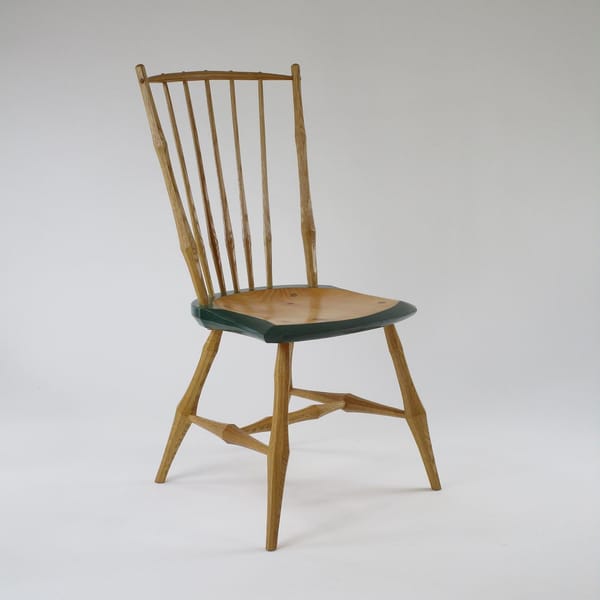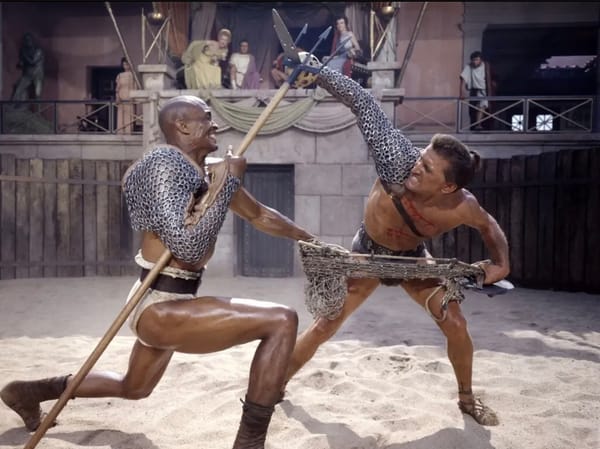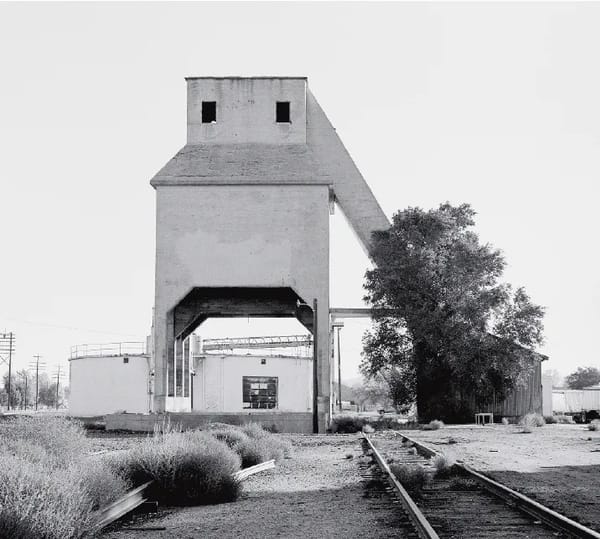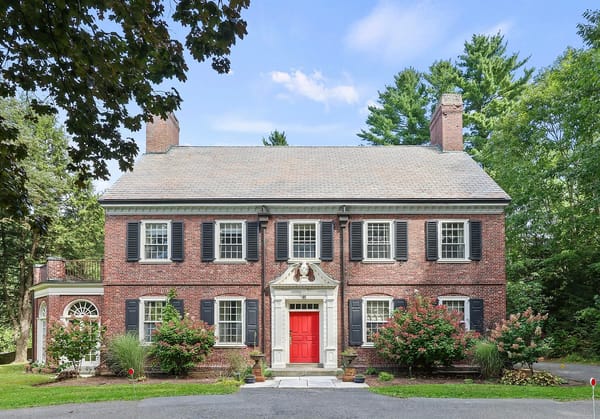Robin and Allen Cockerline, who raise grass-fed beef in Salisbury, CT, are not the type of farmers who'd call their house "stylish" or describe their hamburgers or hot dogs as "gourmet." But their good taste is quite evident at their quaint shop at Whippoorwill Farm, where they sell their meat (tenderloin, brisket, sausages, sirloin, pork chops and more) on Saturdays from 10 AM - 4 PM. The Cockerlines are anything but quaint. They are unreconstructed hippie-artists-turned-farmers who've been making a living from the land since the early 1970s, when they dropped out of the Montserrat art school in Beverly, MA. They eventually found their way to Falls Village CT, where they were dairy farmers who milked their cows daily and grew hay and corn for feed. It was never an easy life and only got tougher over two decades. "There's a saying in the dairy business, Get big or get out," says Allen, who decided to get out.
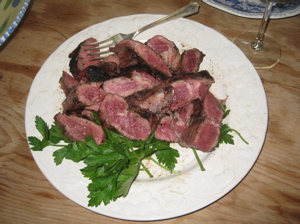
As the millennium approached, Allen started selling his dairy cows and transitioned to raising cattle. Traditionally, even pasture-raised cattle are fed grain the last few months of their lives to fatten them up. "That's what makes American beef sweet," he says. "But I decided not to add that layer of Twinkie fat. I thought they looked their best straight from the pasture." Allen's intuitive belief that grass-fed beef was superior was confirmed by a seminal New York Times Magazine article, Power Steer, in 2002. "Michael Pollan put grass-fed beef on the map," says Allen. The Cockerlines put themselves on the map eight years ago when they designed a corn maze and started selling beef at White Hollow Farm in Lime Rock and realized that it could be a decent business. Three years ago, they bought a run down farmhouse on two acres along the Salmon Kill that borders 60 acres of protected land that they have permission to use for grazing. As artists, they saw the possibilities of the property, and Robin has decorated their house with humble antiques and overstuffed furniture that's impervious to dirty dogs and muddy boots; it's country style at its most authentic. They have developed a loyal following at their once-a-week shop where they also sell their own eggs, Sky Farm greens, and Adamah pickles and kraut. They're still surprised that customers favor more expensive cuts (tenderloin is $25 pound), though Robin and Allen think the hamburger ($5 a pound) is the tastiest of all, and their all-beef hot dogs (7 for $10) are succulent without seeming heavy. Allen surmises that the problem with the hamburger, which is 92% lean, is that people do not understand how to properly cook it. "I tell everybody the same thing," he says. "Don't press down the burgers when you grill them. You're not getting rid of fat since there's hardly any in ours. You're pressing out all the juice."
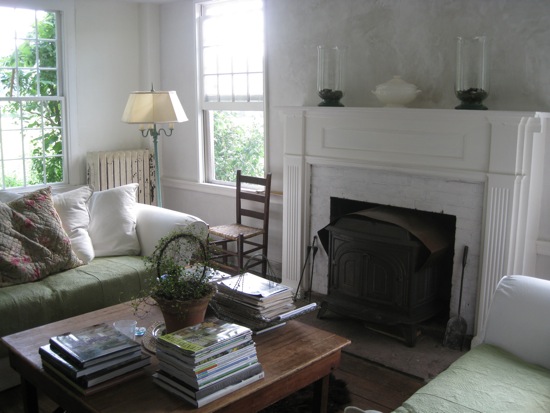
Allen plastered the walls on the fireplace wall and installed a vintage wood stove. The green quilts on the white sofas hide dirt and can be easily washed. Stacks of art and design books feed their imaginations and conversations.
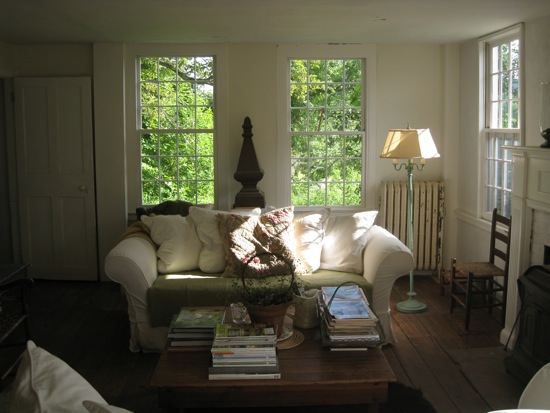
There's no need for curtains because the views of the pastures should not be blocked.
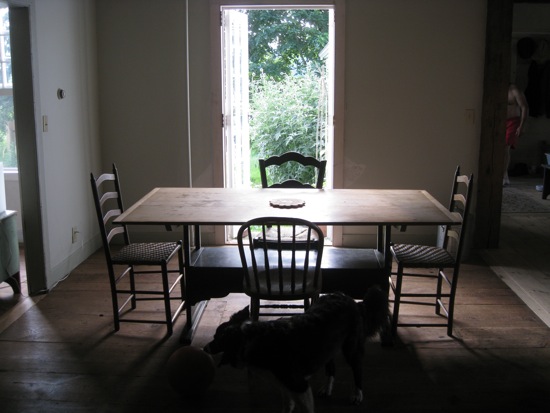
The dining room table was made by a friend's father; mismatched chairs mean that it's easy to add more to the table without upsetting the balance.
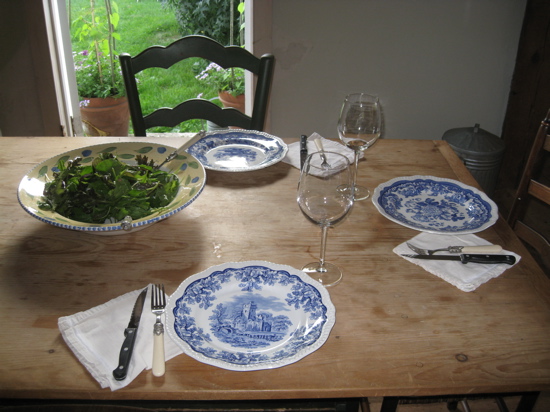
The table is set for an ordinary weekday dinner: grilled grass-fed beef, a salad of Sky Farm Greens, mashed turnips from Chubby Bunny Farm and a bottle of red wine.
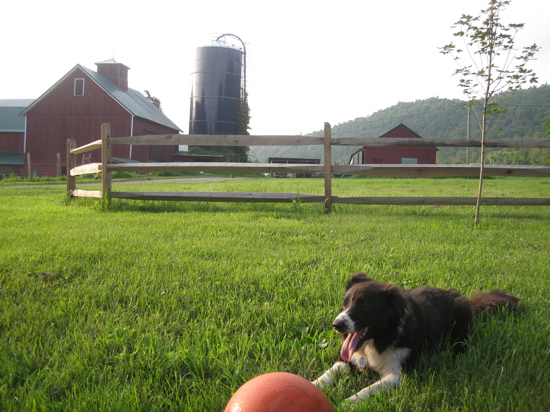
The Cockerlines' border collie, Maggie, rests after playing soccer with a visitor. She likes to play ball with Whippoorwill Farm's customers.

